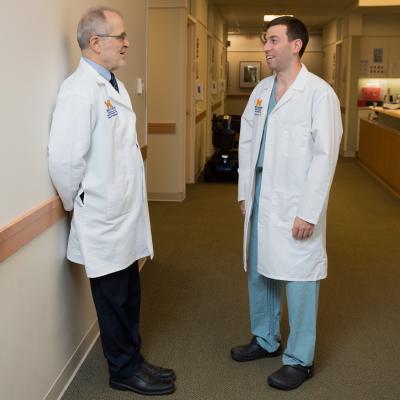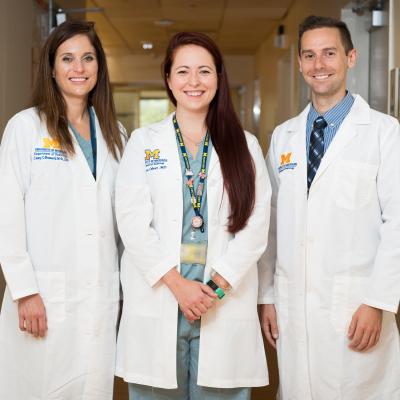The IR Residency provides a broader and more in-depth experience in the clinical diagnosis and care of patients with diseases commonly treated by interventional radiologists. Strong training in diagnostic radiology (DR) will prepare the trainee to obtain ABR certification, while utilizing these skills to plan image-guided interventions. The goal of the residency is to graduate physicians that are proficient diagnostic radiologists and distinguished in the clinical practice of interventional radiology.


Favorite part of residency? By far the people. The attendings, my co-residents, and all the staff are great.
This is a six-year categorical residency, including an internship with the Department of General Surgery. The Surgery internship includes 11 sub-specialized surgical rotations including Thoracic Surgery, Vascular Surgery, Surgical Oncology, Hepatopancreaticobiliary Surgery, Colorectal Surgery, Minimally Invasive Surgery, Acute Care Surgery and Surgical ICU. One rotation is reserved for IR. To learn more about Michigan Surgery's Residency Program please see this page.
Favorite part of residency? The day to day interactions with attendings and co-residents. Everyone in the program is down to earth which makes learning with them on a daily basis enjoyable.
The integrated IR residency is clinically oriented and incorporates DR, IR, and clinical management of patients. Clinical rotations are integrated with diagnostic and interventional radiology rotations so the trainee can maintain and build their IR skills alongside their training in diagnostic imaging. Clinical rotations include vascular surgery outpatient, vascular surgery inpatient, hepatology, and surgical ICU. While on clinical services, the trainee functions as a mid or senior level resident and as a liaison to the diagnostic and interventional radiology services.
While on IR, trainees are actively involved as primary operators, inpatient consultation, and outpatient clinics. With one of the highest trainee to procedure ratios in the country, trainees will have the opportunity to function with graduated levels of supervision, including pre-procedure evaluation of patients, various vascular and nonvascular procedures, consultation with clinicians, admission to the interventional radiology service, and post-procedure follow-up care.
Why Michigan? On my interview day at Michigan, I was blown away by how easily I could relate with everyone that I met. This place is truly unique because of the unforgettable people we have here. My colleagues are some of the most dedicated, down-to-earth, and talented people I know, and the faculty are both passionate about teaching and overall brilliant. This is the ideal place to train.
